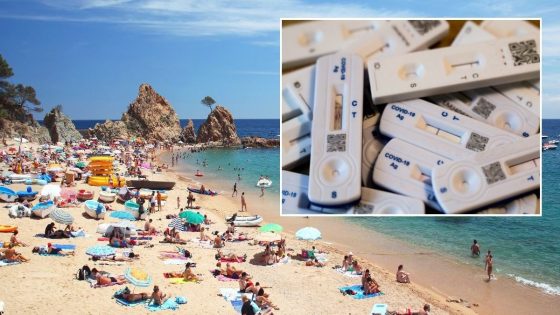Norfolk Southern CEO Alan Shaw was fired for cause by the railroad’s board for “engaging in a consensual relationship with the company’s chief legal officer,” who was also terminated, the railroad announced Wednesday evening.
A statement from the company on Wednesday said that Shaw had been dismissed “for cause,” which could prevent him from collecting the kind of exit package that CEOs often receive when shown the door.
The company originally disclosed that Shaw was the subject of an investigation on Sunday.
Shaw had been CEO of one of the nation’s four largest freight railroads for just over two years. But it had been a turbulent tenure that included contentious labor negotiations that nearly resulted in an economy-crippling strike, a major derailment in East Palestine, Ohio, that released tank cars full of toxic materials into a small Ohio town, sparking health concerns and complaints about continuing symptoms by some residents, and a proxy fight with an activist shareholder group who wanted Shaw replaced.
Shaw survived that shareholder vote, but could not survive the investigation into his personal behavior.
The company said Nabanita Nag has been terminated from her roles as executive vice president corporate affairs, chief legal officer and corporate secretary, effective immediately, in connection with the preliminary findings of the Board’s ongoing investigation. It announced it had picked CFO Mark George as the company’s new CEO.
“The Board has full confidence in Mark and his ability to continue delivering on our commitments to shareholders and other stakeholders,” said Claude Mongeau, chairman of the Norfolk Southern’s board.
The company’s statement contained no expression of thanks to Shaw for his 30 years with the company, nor any statement from Shaw, who could not immediately be reached for comment by CNN. Shaw joined the company in 1994 as a cost systems analyst and steadily moved into positions of increasing responsibility, according to his corporate official biography.
While the railroad’s powerful Brotherhood of Locomotive Engineers and Trainmen union, as well as the union representing workers who do track maintenance, opposed Shaw and Norfolk Southern management during its shareholder proxy fight earlier this year, other unions supported Shaw. And he received praise from some past critics of the railroads for steps he took after the February 2023 derailment in East Palestine to improve railroad safety.
During the proxy battle, Amit Bose, administrator of the Federal Railroad Administration, the nation’s rail regulator, wrote a letter praising the improvement in practices at the railroad under Shaw. He said the moves “are important and demonstrate the ability to make progress when railroads make safety a priority.” And he said that NS was the only Class I railroad to achieve significant reductions in the rate of mainline derailments last year.
Eventually shareholders decided to back Shaw, who was re-elected to the board with 64% of the votes cast. A majority of Norfolk’s slate of director candidates were also elected, although three candidates proposed by Ancora, the activist investor group that sought his ouster, won election to the board as well.
Still, Norfolk’s actions related to the derailment received harsh criticism from Jennifer Homendy, chair of the National Transportation Safety Board, which investigated the accident. She said Norfolk Southern’s actions following the derailment put first responders and neighbors of the derailment site at unnecessary risk. And she said Norfolk’s actions during the investigative process were “unprecedented and reprehensible.”
The NTSB probe found the cause of the derailment to be a failure of the axle of one car that sparked a fire and led to the derailment without sufficient warning to crew members to stop the train in time.
While NS’s actions leading up to the accident did not receive much criticism from the safety agency, its actions in the hours and days that followed received harsh criticism, especially the lack of information that was initially made available to first responders on the scene about the safety hazards they faced and for the decision to have a controlled burn of five tank cars full of vinyl chloride, a toxic chemical.
The burn occurred three days after the derailment, due to stated concerns that there could be an undisclosed explosion. But the NTSB probe found the conditions were unlikely to have caused such an explosion by that point, and that Norfolk Southern officials did not properly inform public officials of that as the decision was made to go ahead with the controlled burn.
This story has been updated with additional reporting and context.
For more CNN news and newsletters create an account at CNN.com
Source Agencies


